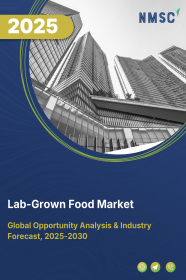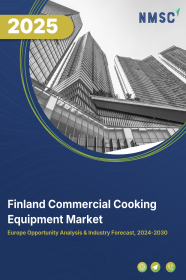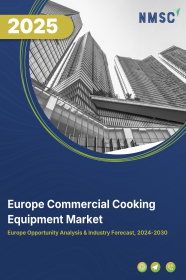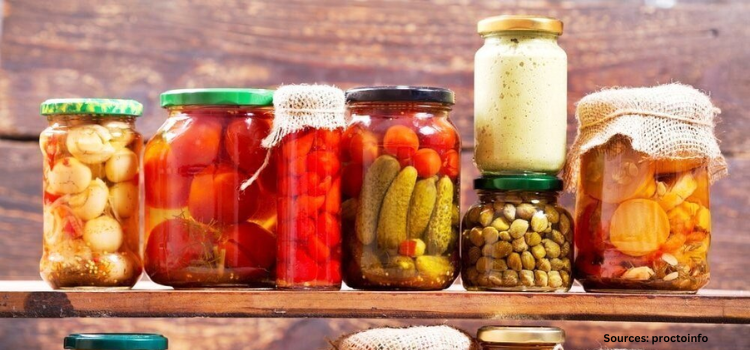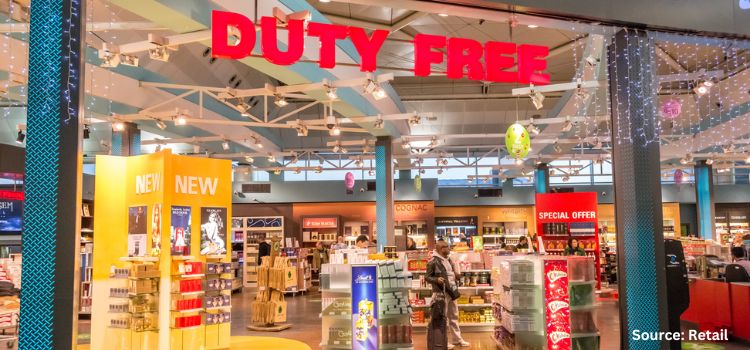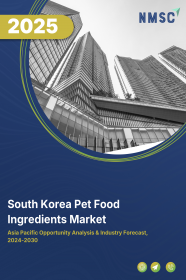
South Korea Pet Food Ingredients Market by Type (Non-Vegan, Vegan, and Novel Proteins), by Nature (Organic and Inorganic), by Form (Dry and Wet), by Pet Type (Dog, Cat, and Others), and by Distribution Channel (Online and Offline) – Opportunity Analysis and Industry Forecast, 2024–2030
Industry: Retail and Consumer | Publish Date: 11-Feb-2025 | No of Pages: 117 | No. of Tables: 85 | No. of Figures: 50 | Format: PDF | Report Code : RC2841
US Tariff Impact on South Korea Pet Food Ingredients Market
Trump Tariffs Are Reshaping Global Business
South Korea Pet Food Ingredients Market Overview
The South Korea Pet Food Ingredients Market size was valued at USD 1.13 billion in 2023, and is predicted to reach USD 1.99 billion by 2030, at a CAGR of 8.0% from 2024 to 2030. In terms of volume the market size was 229.71 kilotons in 2023 and is projected to reach 325.57 kilotons in 2030, with a CAGR of 4.7% from 2024 to 2030.
The pet food ingredients market refers to the industry that produces and supplies essential raw materials necessary for formulating pet foods that meet the dietary requirements of various species. These ingredients comprise proteins, carbohydrates, fats, vitamins, and minerals derived from both plant and animal sources and are processed using techniques such as grinding and blending to enhance their nutritional benefits and flavour.
The use of premium pet food ingredients is important for promoting pet health and facilitating growth as they provide the essential nutrients needed to address specific dietary demands and health issues. The companies in this field are placing a greater emphasis on high-quality ingredients while ensuring transparency throughout their supply chains that enhances the nutritional quality of their products and builds consumer confidence.
As a result, this commitment contributes to the overall growth of the pet food ingredients market, with consumers increasingly favouring high-quality options for their pets.
Rising Pet Ownership Drives the South Korea Pet Food Ingredients Market
The pet humanization trend significantly boosts the demand for nutritious and high-quality pet food as more pet owners regard their animals as integral family members. This change leads to an increased emphasis on providing food that meets human dietary standards. Consequently, manufacturers are inspired to innovate and supply premium ingredients that align with these evolving consumer preferences.
As per the latest report published by the Humane Society International, in September 2024, approximately 6 million pet dogs are living in Korean households. This shift towards treating pets as family members along with substantial number of pet dogs in Korean homes, drives manufacturers to prioritize the inclusion of premium pet food ingredients, further fueling market growth.
Expansion in Disposable Income Boosts the South Korea Pet Food Ingredients Market
The growth of disposable income in South Korea boosts the demand for pet food as consumers are more willing to invest in premium and high-quality products for their pets. This trend illustrates a growing consciousness about pet health and nutrition, prompting manufacturers to enrich their offerings with better ingredients, thereby driving market expansion.
According to the reports published by the World Population Review, the disposable income in South Korea was USD 24,590 per household. This increasing income encourages the demand for high-quality pet food options that support the overall well-being of pets.
The Scarcity of Ingredients Restraints China’s Pet Food Ingredients Market Growth
The restricted availability of essential resources restraints the development of China's pet food nutrition market as premium ingredients such as quality meats, specialized grains, and plant-based options remain scarce. Furthermore, rising costs associated with these limited ingredients reduces innovation and product development, presenting challenges for companies attempting to invest in new formulations and sustainable sourcing strategies.
Ultimately, these obstacles slow the market's overall growth and expansion, limiting its opportunities in both established and emerging sectors.
Adoption of Sustainable Protein Sources Creates Growth Opportunity for the Market
The use of sustainable protein sources such as egg-based proteins, tofu derivatives, black soldier flies, and silkworms is expected to create new avenues in the pet food ingredient market. These alternatives are increasingly appreciated for their rich nutritional content and reduced environmental impact when compared to traditional proteins such as beef and pork.
Egg proteins and tofu byproducts supply vital nutrients while contributing to the reduction of food waste. Similarly, insect-based proteins including those from black soldier flies and silkworms provides resource-efficient way of producing protein, offering organic options for the pet food sector. Such alternatives not only meet the nutritional needs of pets but also support a more sustainable supply chain and drives the industry towards environmentally responsible practices and long-term growth.
Competitive Landscape
The several market players operating in the South Korea pet food ingredients market include Cargill Incorporated, BASF SE, Archer Daniels Midland Company (ADM), Koninklijke DSM N.V., Mowi ASA, Symrise AG, Kemin Industries Inc., EreBon, Roquette Freres, SGS SA, and others.
South Korea Pet Food Ingredients Market Key Segments
By Type
-
Non-Vegan
-
Beef
-
Chicken
-
Fish
-
Others
-
Vegan
-
Soyabeans
-
Peas
-
Lentils
-
Others
-
Novel Proteins
By Nature
-
Organic
-
Inorganic
By Form
-
Dry
-
Wet
-
By Pet Type
-
Dog
-
Cat
-
Others
-
By Distribution Channel
-
Online
-
Offline
Key Players
-
Cargill Incorporated
-
BASF SE
-
Archer Daniels Midland Company (ADM)
-
Koninklijke DSM N.V.
-
Mowi ASA
-
Symrise AG
-
Kemin Industries Inc.
-
EreBon
-
Roquette Freres
-
SGS SA
REPORT SCOPE AND SEGMENTATION:
|
Parameters |
Details |
|
Market Size in 2023 |
USD 1.13 Billion |
|
Revenue Forecast in 2030 |
USD 1.99 Billion |
|
Growth Rate |
CAGR of 8.0% from 2024 to 2030 |
|
Market Volume in 2023 |
229.71 Kilotons |
|
Volume Forecast in 2030 |
325.57 Kilotons |
|
Growth Rate (Volume) |
CAGR of 4.7% from 2024 to 2030 |
|
Analysis Period |
2023–2030 |
|
Base Year Considered |
2024 |
|
Forecast Period |
2024–2030 |
|
Market Size Estimation |
Billion (USD) |
|
Growth Factors |
|
|
Companies Profiled |
10 |
|
Market Share |
Available for 10 companies |
|
Customization Scope |
Free customization (equivalent up to 80 working hours of analysts) after purchase. Addition or alteration to country, regional, and segment scope. |
|
Pricing and Purchase Options |
Avail customized purchase options to meet your exact research needs. |

















 Speak to Our Analyst
Speak to Our Analyst



